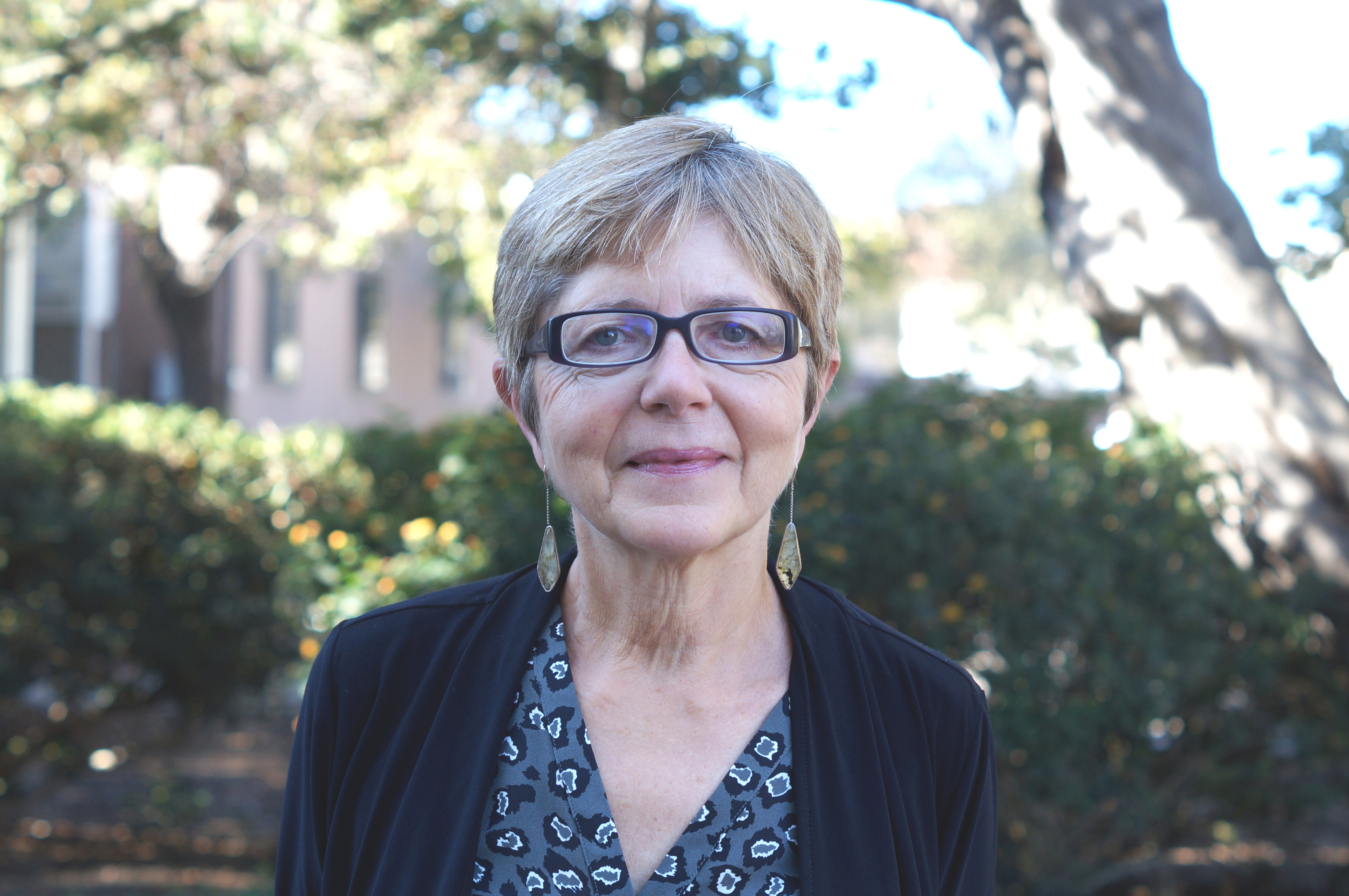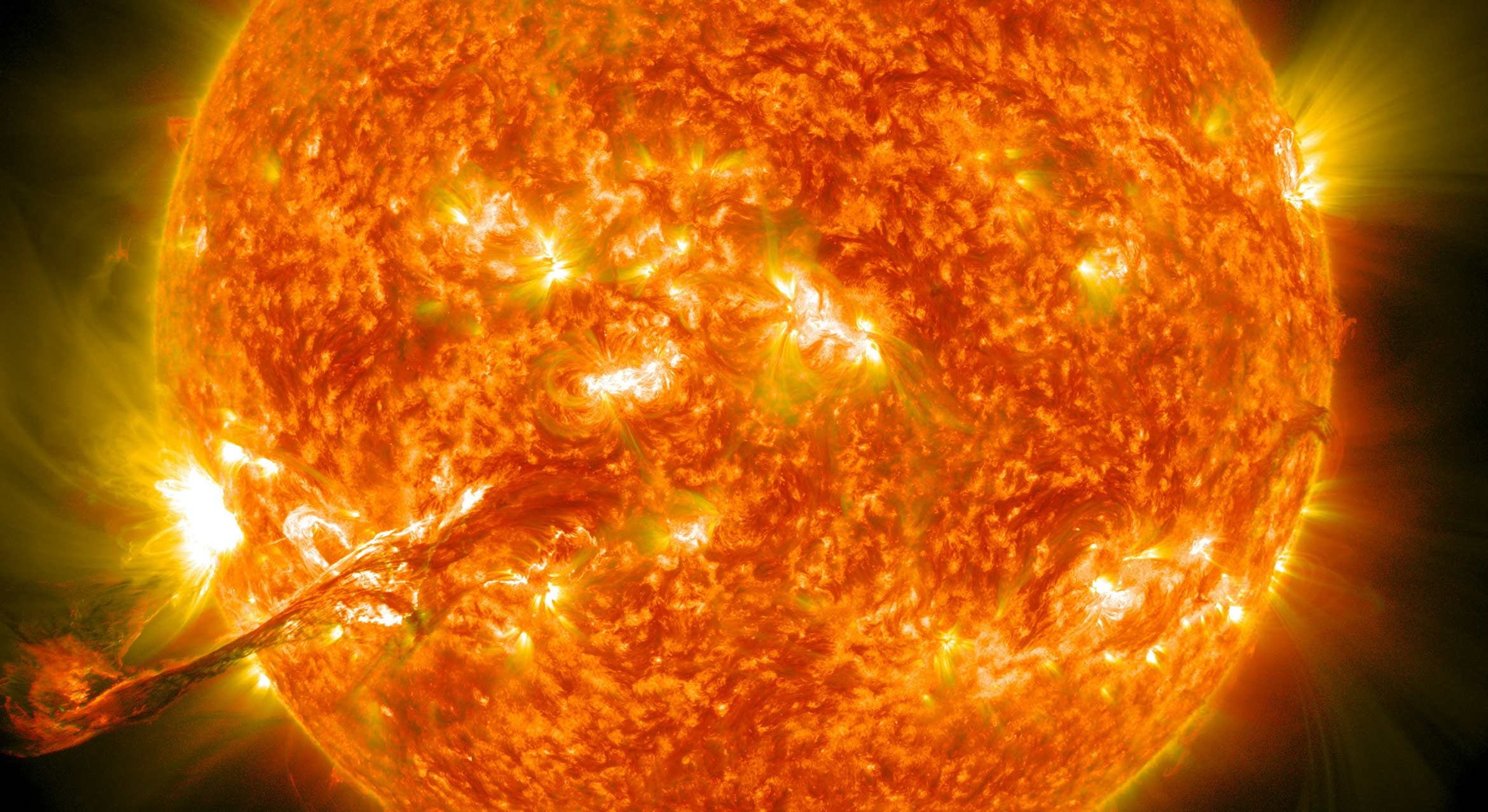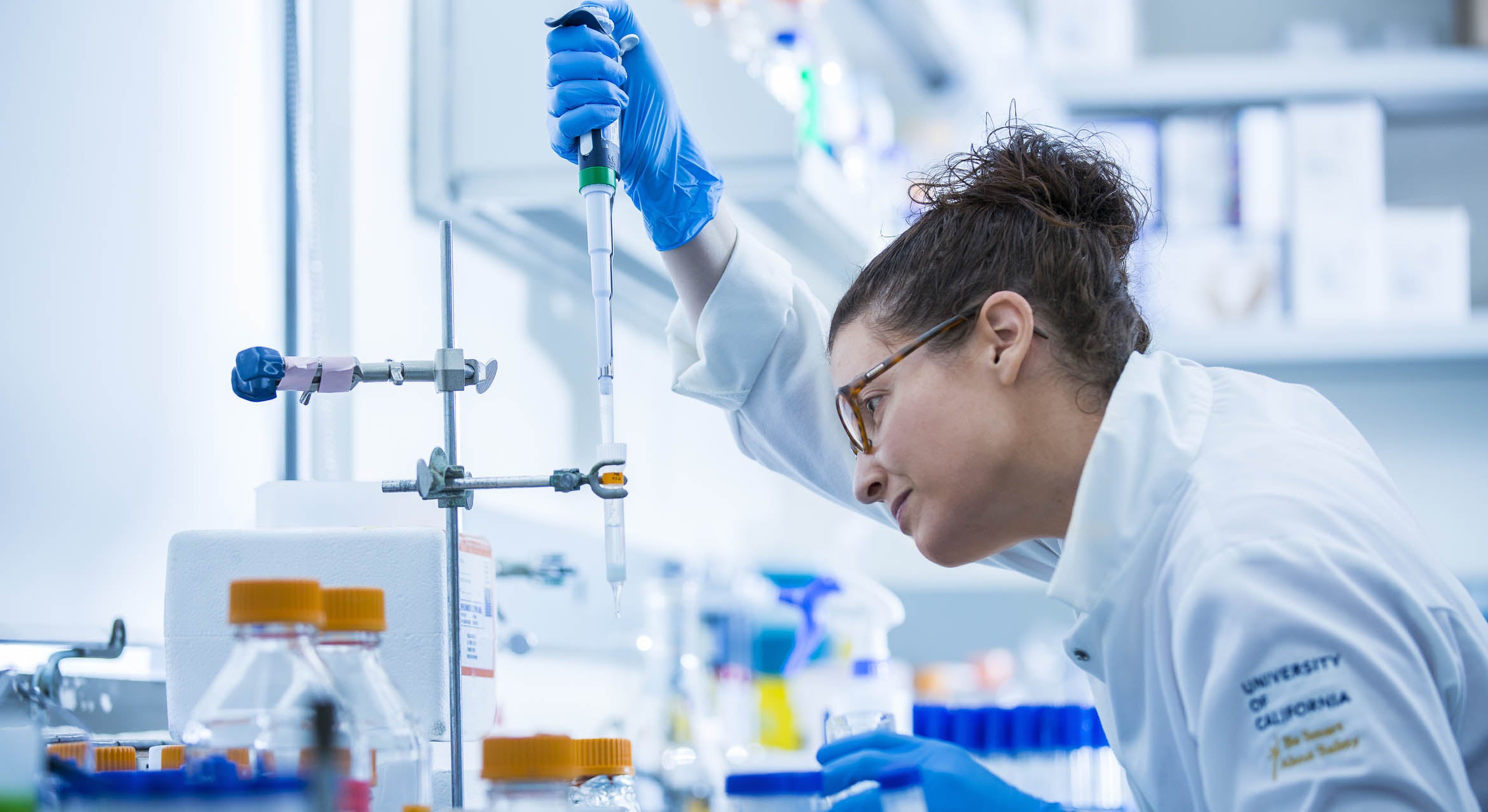
‘Profound Work’
Swarms of bees, schools of fish, bacterial colonies, our own tissues.
How these systems behave — individual, self-driven entities interacting within a larger group — allows physicists to pose interesting questions. What influences the organization of individual members into large-scale, coherent and coordinated motions? How might these physical dynamics apply toward a deeper understanding of biological, synthetic and even quantum systems.
M. Cristina Marchetti, a UC Santa Barbara physics professor, has been asking these very questions. With research specialties in active matter, she conducts work that involves quantifying the interesting and often complex behaviors — including phenomena such as reactions and phase changes, interactions with their environments and loss of equilibrium — of systems with many individual “agents.”
Now, for her “original contributions to equilibrium and non-equilibrium statistical mechanics, including profound work on equilibrium and driven vortex systems, and fundamental research and leadership in the growing field of active matter,” Marchetti has been awarded the inaugural Leo P. Kadanoff Prize by the American Physical Society.
“Cristina’s work is at the forefront of the exciting and rapidly advancing field of active matter physics — a field that she has helped define and create,” said Boris Shraiman, Marchetti’s colleague and fellow physics professor at UC Santa Barbara. “Her work advances the ideas and tools of statistical mechanics far beyond the domain of equilibrium to describe driven and ‘active’ systems, in particular active systems that generate internal forces, which are ubiquitous in living matter. For example, Cristina is responsible for major advances in ‘active hydrodynamics,’ which deals with flow of self-propelled particles such as bacteria.
“Leo Kadanoff himself was the major driving force in the modern development of statistical mechanics and hydrodynamic theory,” Shraiman added, and both he and Marchetti “pushed the envelope of statistical physics to describe systems out of equilibrium.”
“We are so proud of Cristina for receiving this prestigious award for her original research and leadership in her field,” said Pierre Wiltzius, dean of mathematical, life and physical sciences at UC Santa Barbara. “I knew Leo Kadanoff. He was one of the giants of condensed matter theory and a hero of mine, which makes this award all the more special.”
“I am truly honored to be the first recipient of the Kadanoff Prize,” Marchetti said. “Leo Kadanoff was a true giant in the field of statistical physics. I have always admired the contributions he made to the field, both as a scientist and as an educator, and his success in demonstrating the relevance of statistical physics to a diversity of problems in science.
“It makes me feel very special to have been selected for this award, but much credit should go to the many excellent students, postdocs and collaborators with whom I had the fortune to work over the years,” Marchetti continued. “I am also delighted that the committee decided to highlight the physics of systems out of equilibrium, and specifically the field of active matter.”
Marchetti joined the UC Santa Barbara Department of Physics in 2018, after almost 30 years as a professor of physics at Syracuse University. Prior to that, Marchetti was an assistant professor of physics at the University of Illinois in Chicago. She has also been a visiting professor at Harvard University and a member of the Kavli Institute for Theoretical Physics (KITP) at UC Santa Barbara. She received her Ph.D. in physics from the University of Florida, and her Laurea (equivalent to a masters degree) cum laude from the University of Pavia in Italy. Marchetti is a Fellow of the American Physical Society, the American Academy of Arts & Sciences, and the American Association for the Advancement of Science.
A widely admired theoretical physicist whose work laid the foundations for a deeper understanding of nature and inspired scientists in many fields, Leo P. Kadanoff taught at the University of Illinois, then Brown University and finally University of Chicago before his death in 2015. Kadanoff, who served as president of APS from 2007-2008, also received many accolades and awards for his work, including the 1980 Wolf Prize and the 1999 National Medal of Science.
“I don’t know that Leo Kadanoff thought of ‘major awards’ as being of any particular importance, but I do think he’d be delighted that the first Kadanoff Prize will be awarded to someone whose work has charted a new direction for both statistical and nonlinear physics,” commented Greg Huber, the chair of the APS Group on Statistical and Nonlinear Physics, who sponsored the prize.



